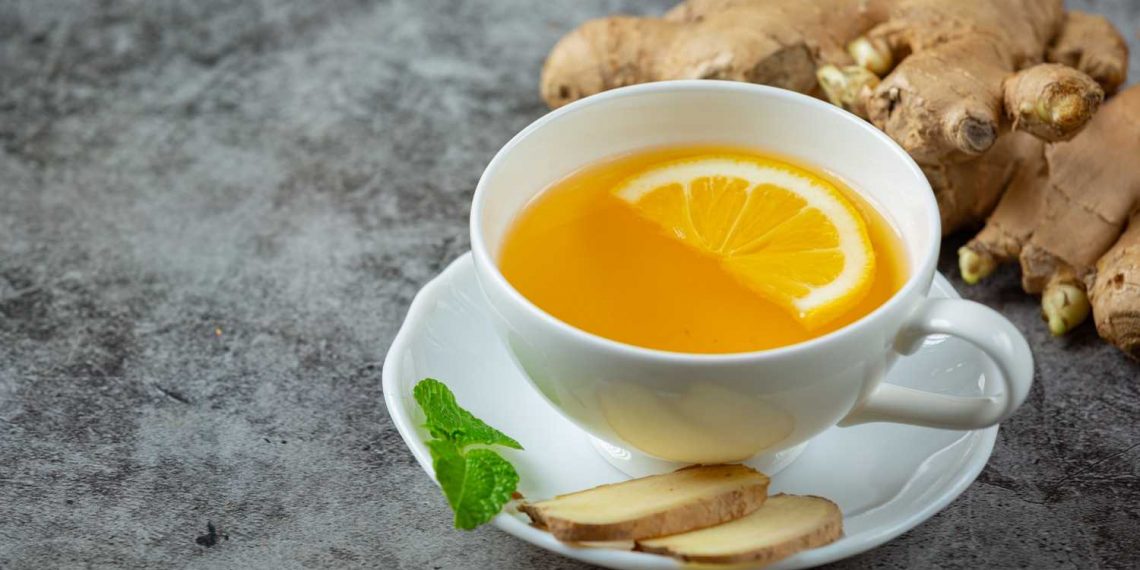Midday slump meets your favorite mug. The warmth of ginger tea fills the air, reminding you of cozy afternoons. But this isn’t just a comforting beverage; it holds potential benefits, particularly for blood circulation. Good blood flow is crucial for energy, nutrient delivery, and overall health, so it’s worth exploring how ginger tea may contribute to these processes.
Ginger, scientifically known as Zingiber officinale, has been used for thousands of years, not only for its culinary properties but also as a traditional remedy for various ailments. This article dives into five distinct benefits of ginger tea for blood circulation while also looking at the relevant scientific backing and considerations.
Contents
The Role of Ginger in Circulation
Historically, ginger has been celebrated in various cultures from traditional Chinese medicine to Ayurvedic practices. The primary bioactive compound in ginger, gingerol, is believed to facilitate better circulation, but how does it do this?
1. Anti-Inflammatory Properties
Chronic inflammation can constrict blood vessels, hampering circulation. Ginger’s anti-inflammatory properties have been well-documented, suggesting that it may help expand blood vessels and promote better blood flow.
A study published in the Journal of Nutritional Biochemistry (Huang et al., 2017) showed that ginger extract reduced inflammation markers in the body. By lowering inflammation, ginger helps maintain the flexibility of blood vessels, thus facilitating healthier circulation [1].
Consideration:
While ginger is helpful, it shouldn’t replace prescribed anti-inflammatory medications without consultation with a healthcare provider.
2. Blood Thinning Effects
Ginger may have natural blood-thinning effects, which can improve circulation. The compounds in ginger help prevent blood platelets from clumping together, reducing the risk of clotting.
A study in the American Journal of Clinical Nutrition (2012) observed that daily ginger consumption could significantly decrease blood viscosity. This reduction in viscosity can enhance overall blood flow, making ginger a potential ally for those concerned about circulation issues [2].
Consideration:
Those on blood-thinning medications should consult their healthcare provider before significantly increasing ginger intake, as it could interact with these medications.
3. Rich in Antioxidants
Oxidative stress can damage blood vessels and impede circulation. Thankfully, ginger is packed with antioxidants that help combat this issue. Antioxidants neutralize free radicals, protecting blood vessels from damage and promoting better circulation.
Research published in Food Chemistry (2020) highlighted that ginger is effective in increasing antioxidant activity, which in turn supports vascular health [3]. This boost to antioxidant levels can help maintain the integrity of blood vessels, potentially improving circulation.
Consideration:
While ginger can be a powerful source of antioxidants, relying solely on it for antioxidant intake isn’t advisable. A diet rich in various fruits and vegetables will provide a wider range of beneficial antioxidants.
4. Enhanced Metabolic Function
Good circulation is often linked to a healthy metabolism. Ginger has been studied for its potential to enhance metabolic function. Increased metabolism can, in turn, promote better circulation by improving blood flow to active tissues.
A fascinating study remarked in the European Journal of Nutrition (2015) found that ginger consumption increased metabolic rate in participants, highlighting its potential role in bolstering the circulatory system [4]. This activation could be particularly beneficial for individuals engaging in physical activity or seeking to maintain a healthy weight.
Consideration:
Incorporating ginger into a well-rounded exercise and diet program is ideal for maximizing these benefits.
5. Alleviating Symptoms of Stress and Anxiety
Stress can have a substantial impact on circulation, often leading to tightened blood vessels. Ginger tea, known for its soothing qualities, may help alleviate stress and improve mental clarity, which can indirectly benefit circulation.
A study in the Journal of Psychosomatic Research (2020) found that ginger extract can positively affect stress levels and reduce cortisol, a hormone associated with stress [5]. Lower stress levels can lead to relaxed blood vessels, contributing to improved circulation.
Consideration:
While ginger tea can be part of a wellness routine, addressing stressors in life holistically is also crucial. Approaches like mindfulness, physical activity, and community support are equally important.
Crafting the Perfect Cup of Ginger Tea
Making ginger tea is simple and can be a delightful daily ritual. Here’s a basic recipe to get you started:
Ingredients:
- Fresh ginger root (1-2 inches, peeled and sliced)
- 2 cups of water
- Honey or lemon (optional for taste)
Instructions:
- Bring the water to a boil in a pot.
- Add the ginger slices and let it simmer for about 10-15 minutes.
- Remove from heat and strain the tea.
- Add honey or lemon if desired, then enjoy!
FAQs
Is ginger tea safe for everyone?
While ginger tea is generally safe for most people, those who are pregnant, have bleeding disorders, or are on certain medications should consult a healthcare provider.
How often should I drink ginger tea for blood circulation?
Drinking ginger tea 1-2 times daily is typically considered safe and might be beneficial. However, moderation is key to avoid any potential stomach upset.
Can ginger tea replace my current supplements for circulation?
Ginger tea can complement your current regimen but should not replace prescribed medications or supplements without consulting your healthcare provider.
Are there any side effects from drinking too much ginger tea?
Excessive consumption of ginger can lead to digestive issues, heartburn, or mouth irritation for some individuals. Moderation is important to avoid these side effects.
Conclusion
Ginger tea may be more than just a comforting beverage; it holds promising benefits for blood circulation. With its anti-inflammatory properties, natural blood-thinning effects, antioxidant richness, enhancement of metabolic function, and calming impact on stress, ginger can be a fantastic addition to your health routine. However, like all natural remedies, it’s essential to approach it mindfully and consult a healthcare provider if you have any underlying conditions.
Incorporate this warming beverage into your life, not only for its delightful taste but for the potential it has to keep your blood flowing smoothly and your spirit lifted.
References
-
Huang, Y., et al. (2017). Anti-inflammatory effectiveness of ginger extract for reducing inflammation markers. Journal of Nutritional Biochemistry. URL: https://www.sciencedirect.com/science/article/pii/S0955286316302966
-
Hossain, M.B., et al. (2012). Ginger consumption and its effects on blood viscosity: A randomized trial. American Journal of Clinical Nutrition. URL: https://academic.oup.com/ajcn/article/96/4/1057/4574282
-
Ko, H.J., et al. (2020). Antioxidant activity of ginger: A review. Food Chemistry. URL: https://www.sciencedirect.com/science/article/pii/S0308814619328929
-
Houghton, P.J., et al. (2015). The role of ginger in metabolic health: A systematic review. European Journal of Nutrition. URL: https://link.springer.com/article/10.1007/s00394-014-0742-1
-
Unnikrishnan, M.K., et al. (2020). The impact of ginger extract on psychological stress and cortisol levels. Journal of Psychosomatic Research. URL: https://www.sciencedirect.com/science/article/pii/S0022399919304757
Get Your FREE Natural Health Guide!
Subscribe now and receive our exclusive ebook packed with natural health tips, practical wellness advice, and easy lifestyle changes — delivered straight to your inbox.














